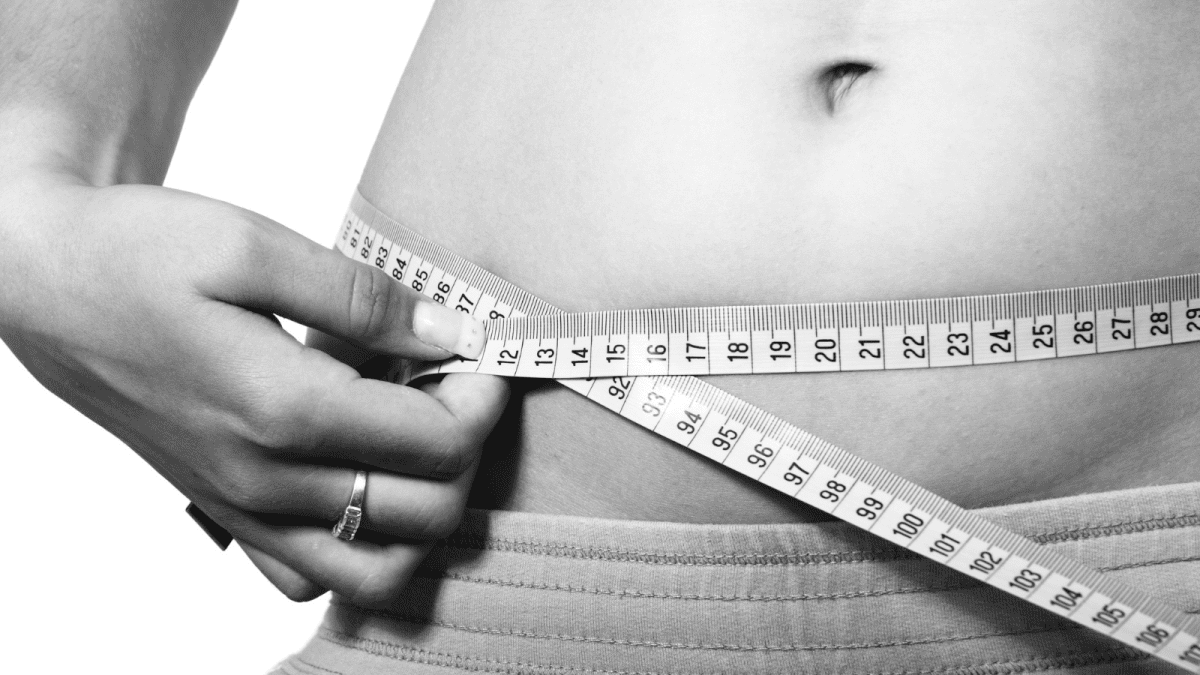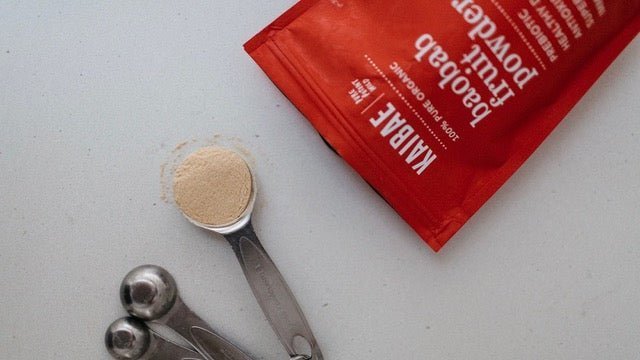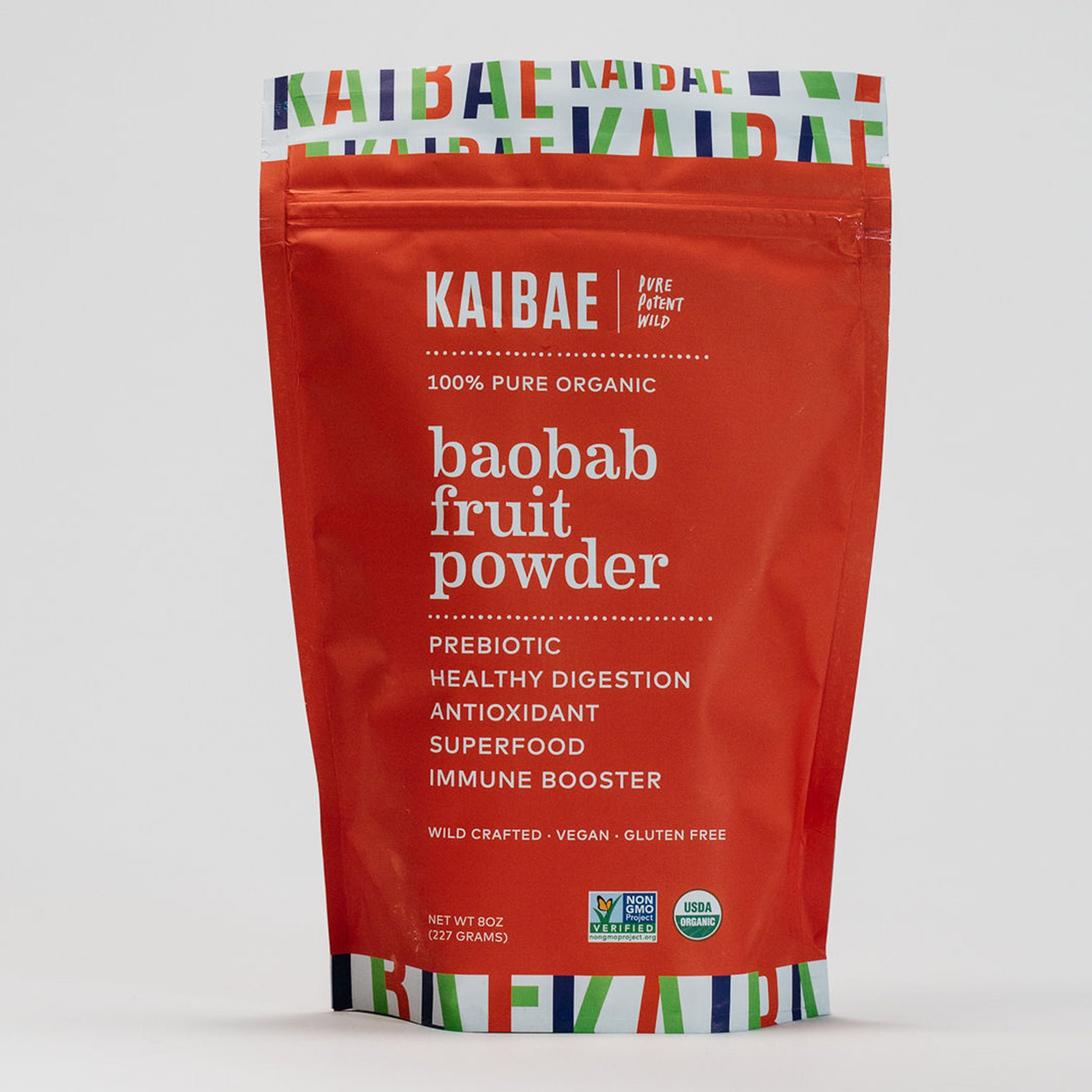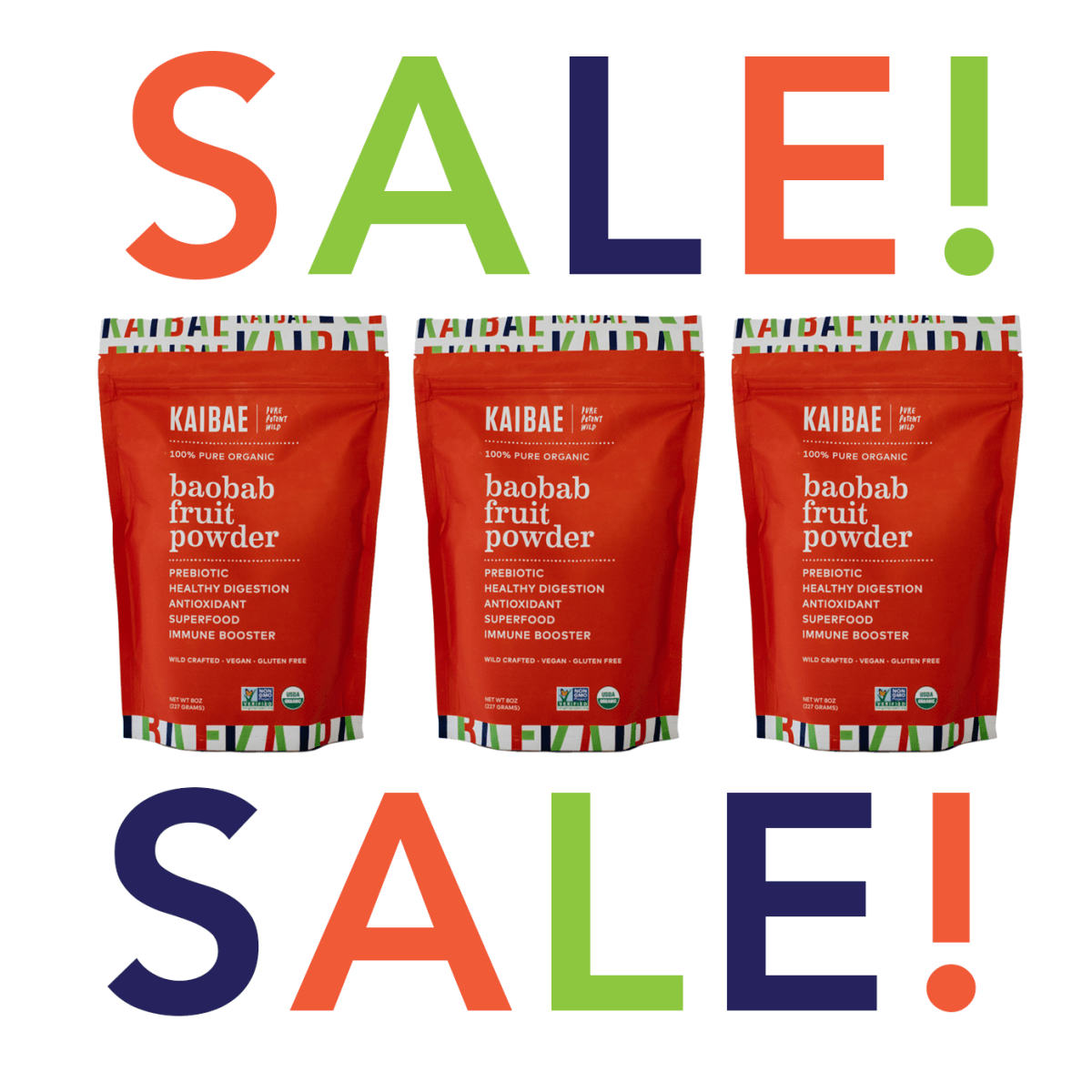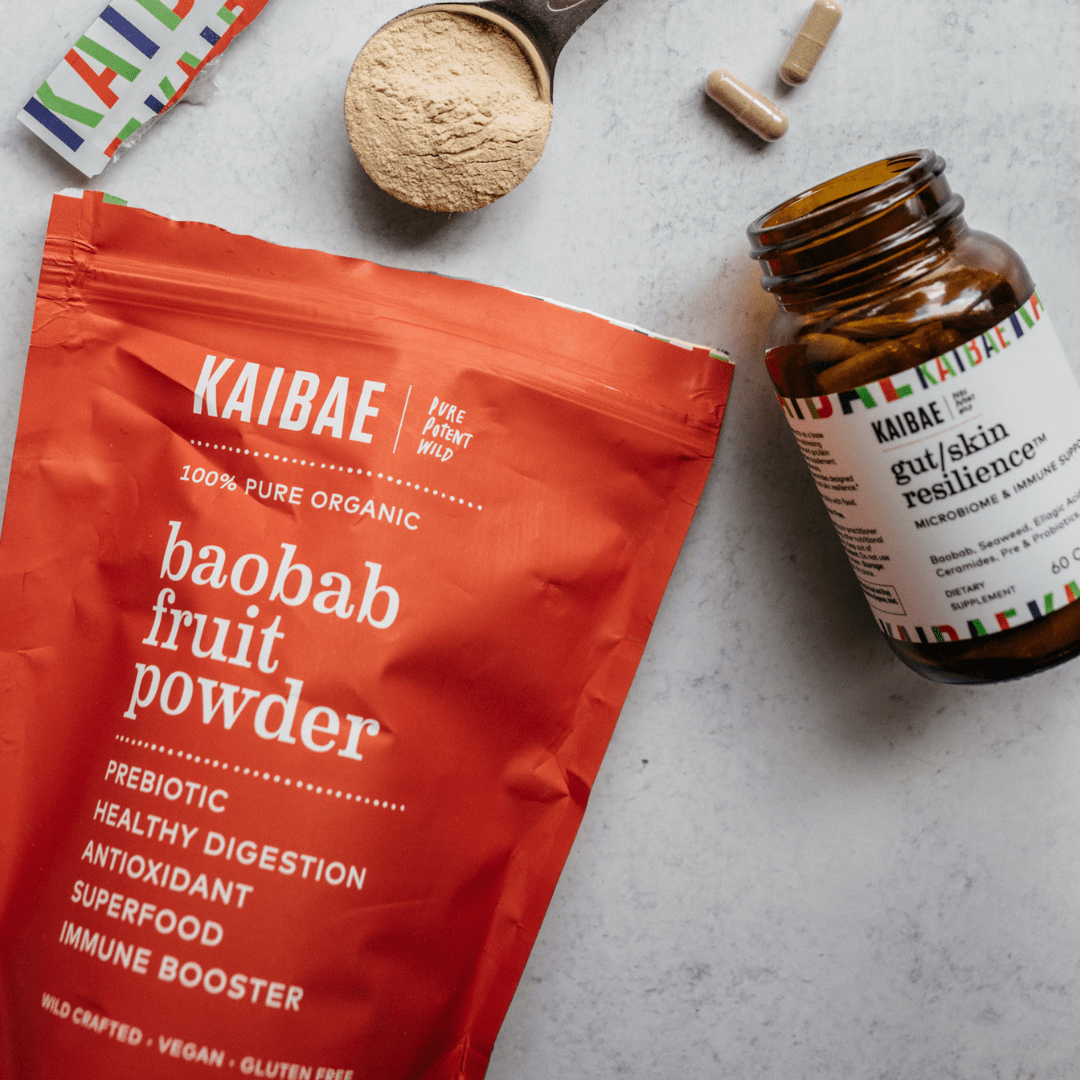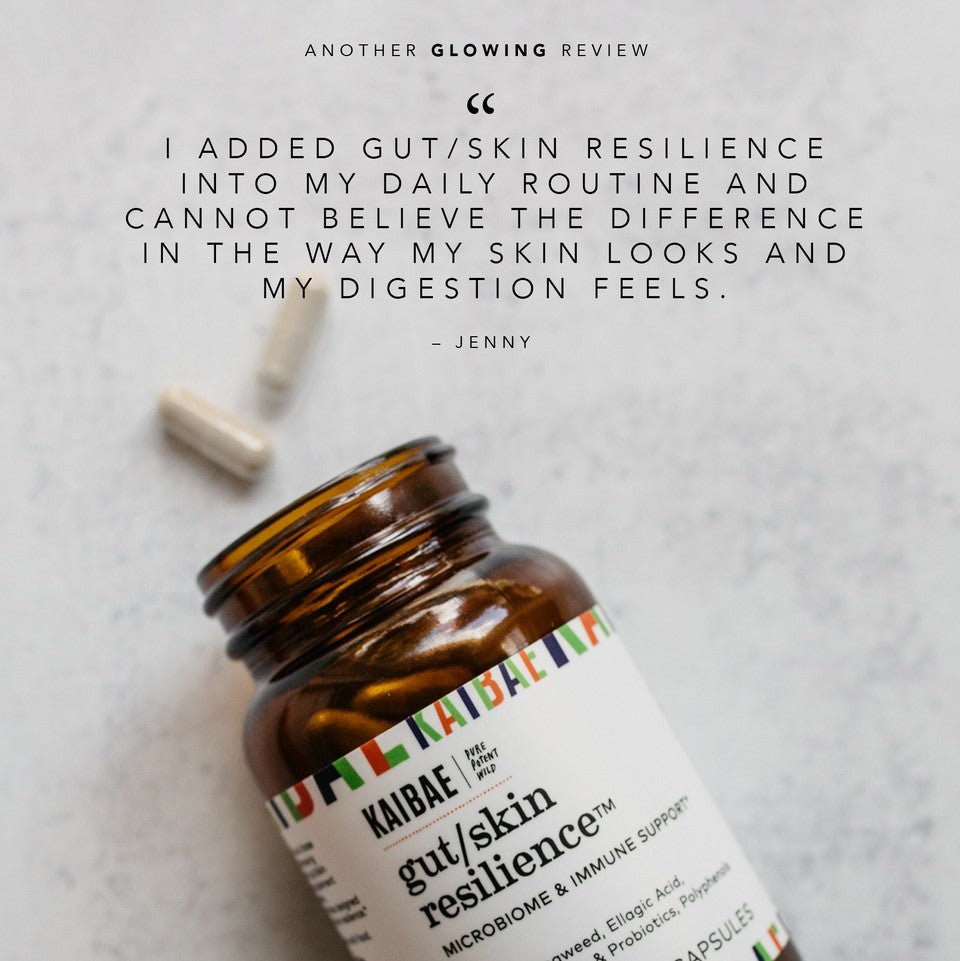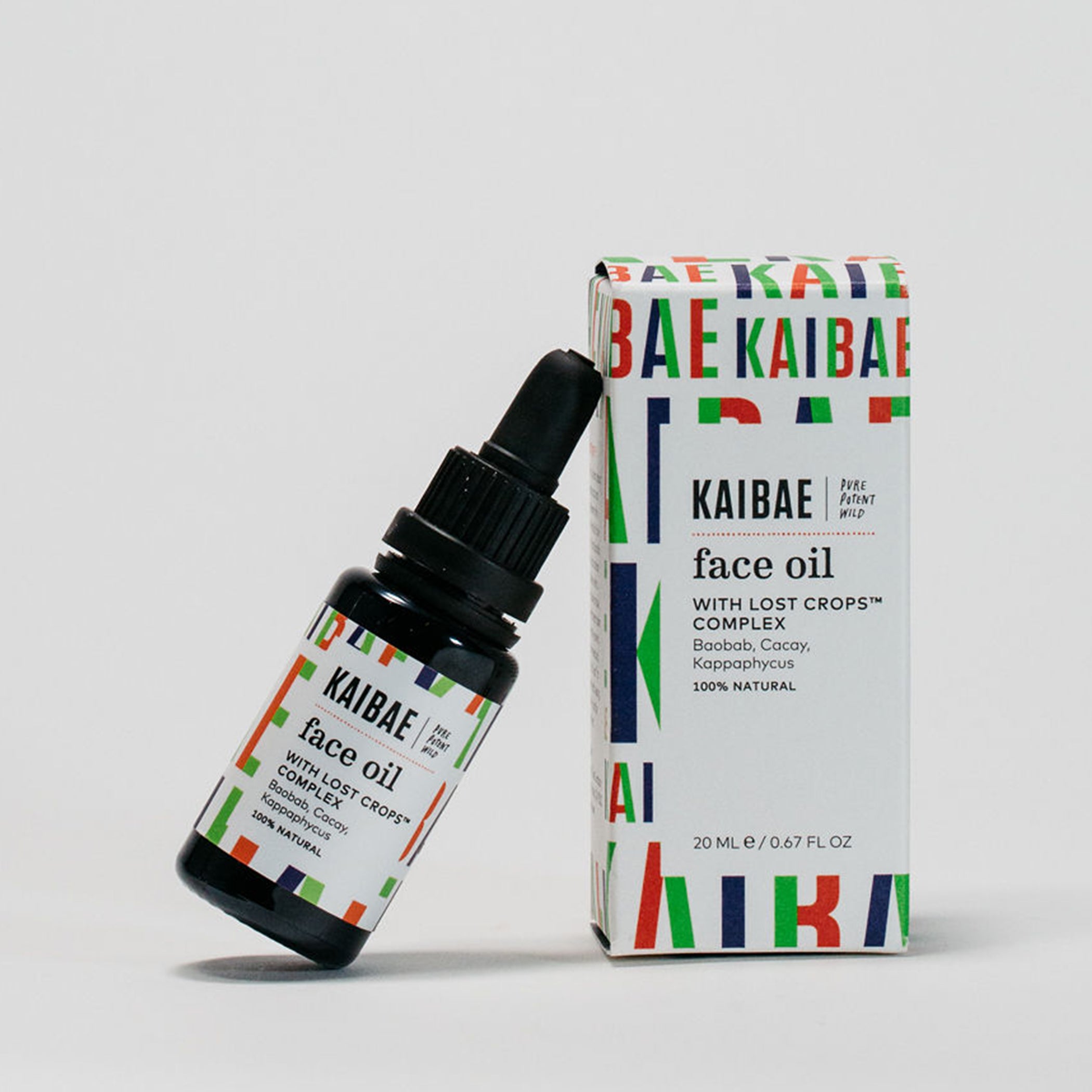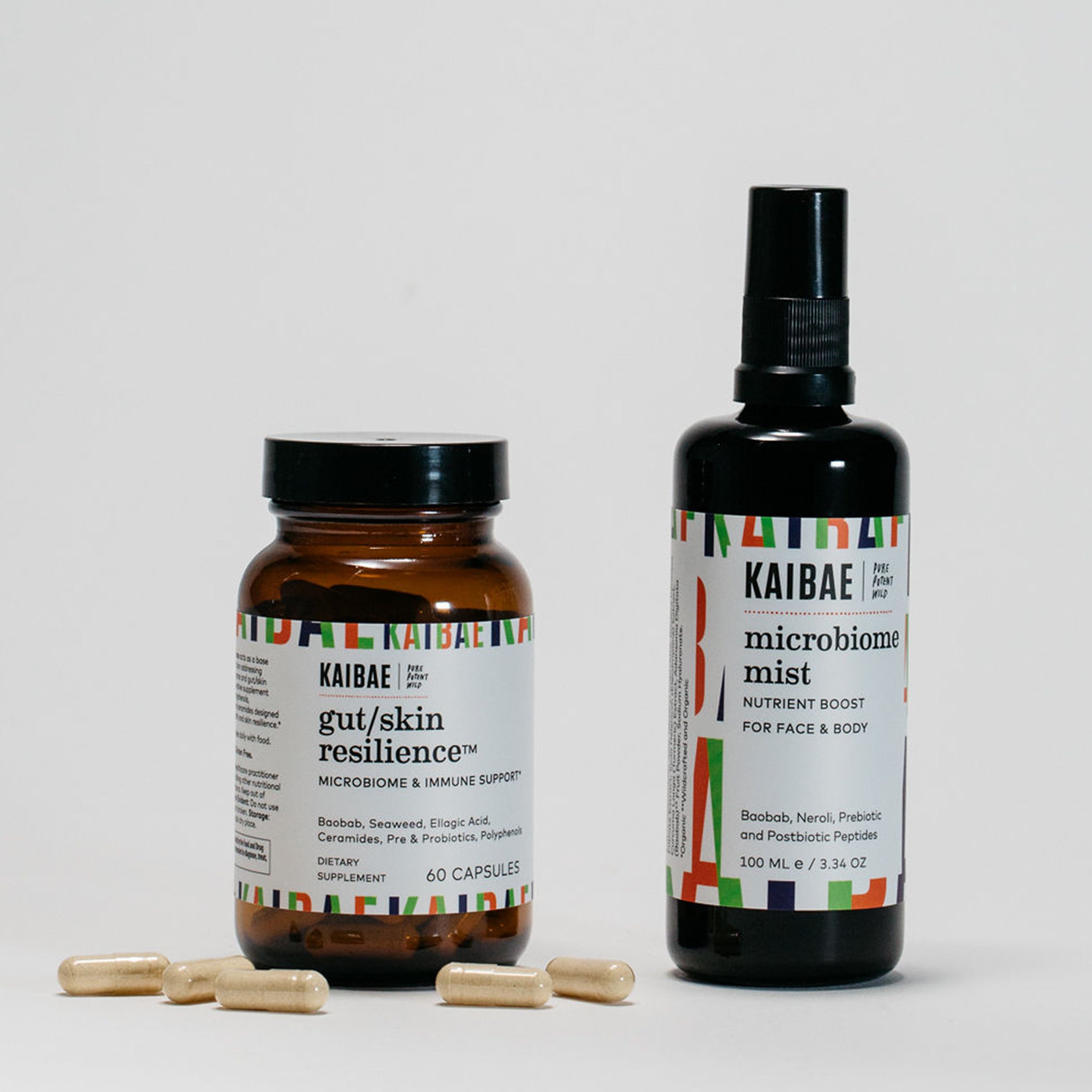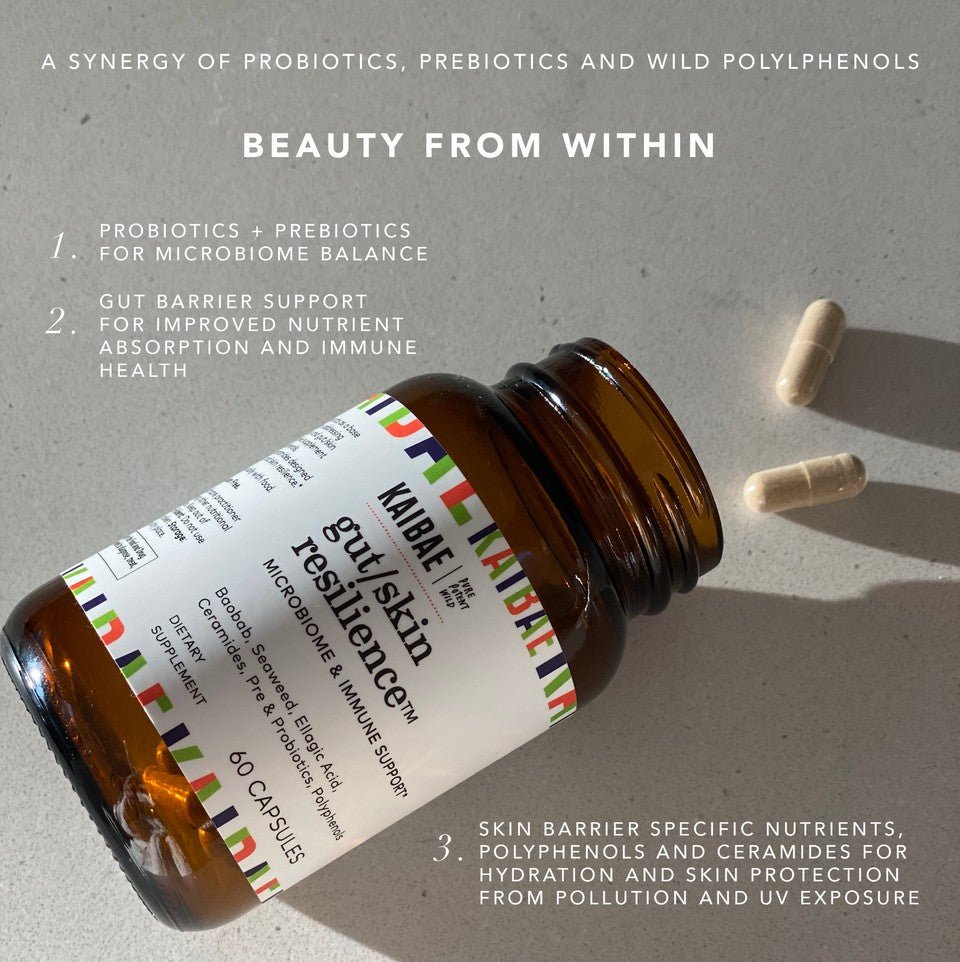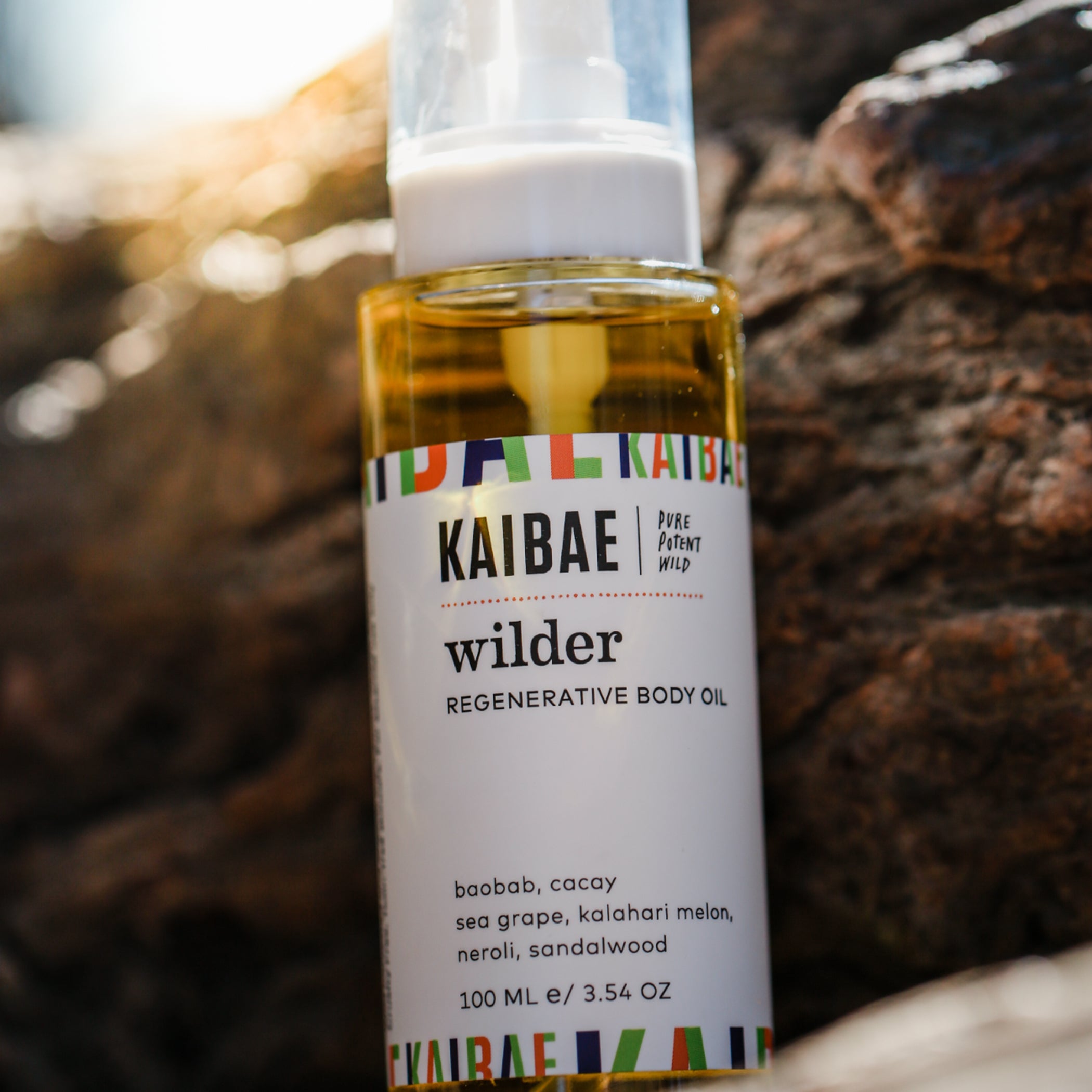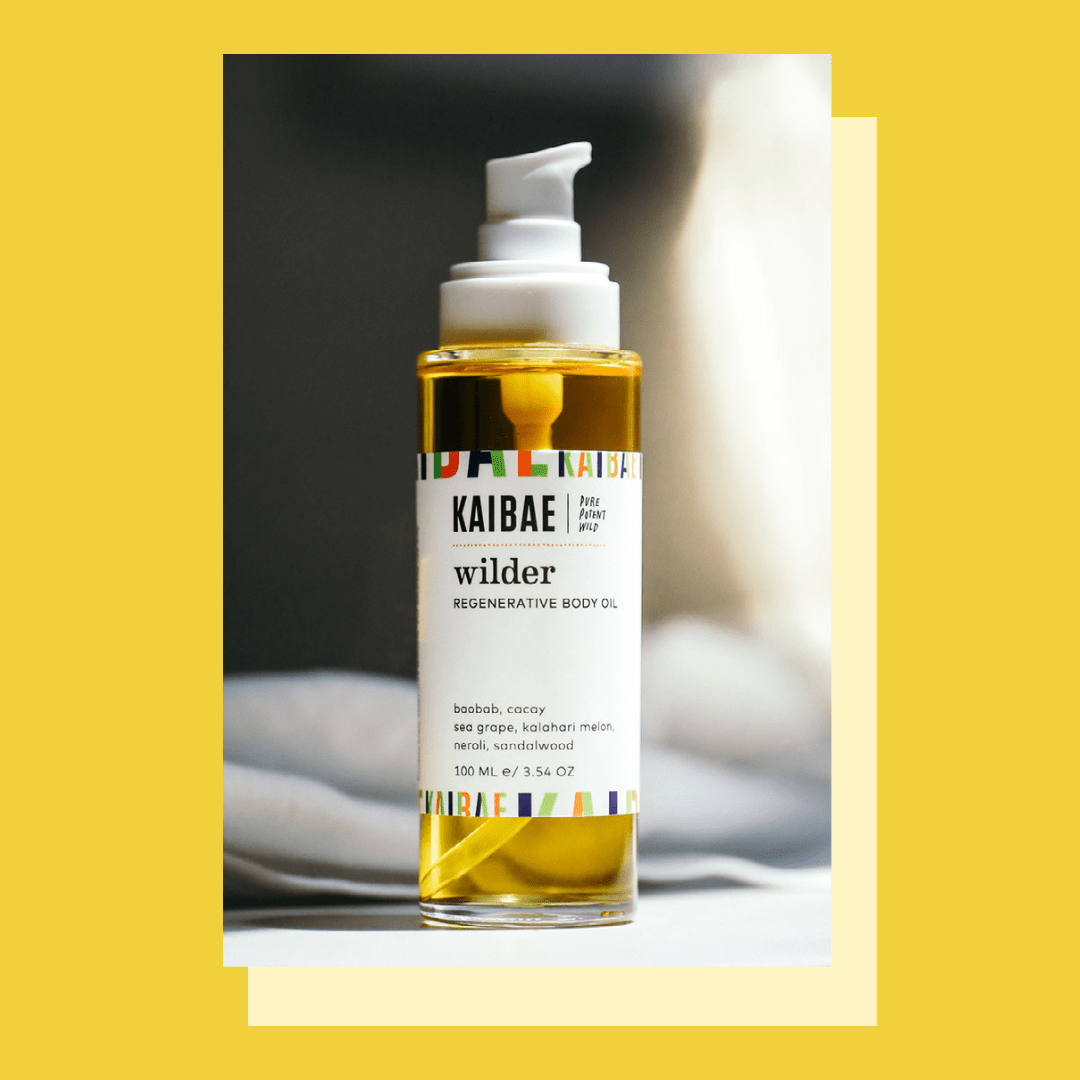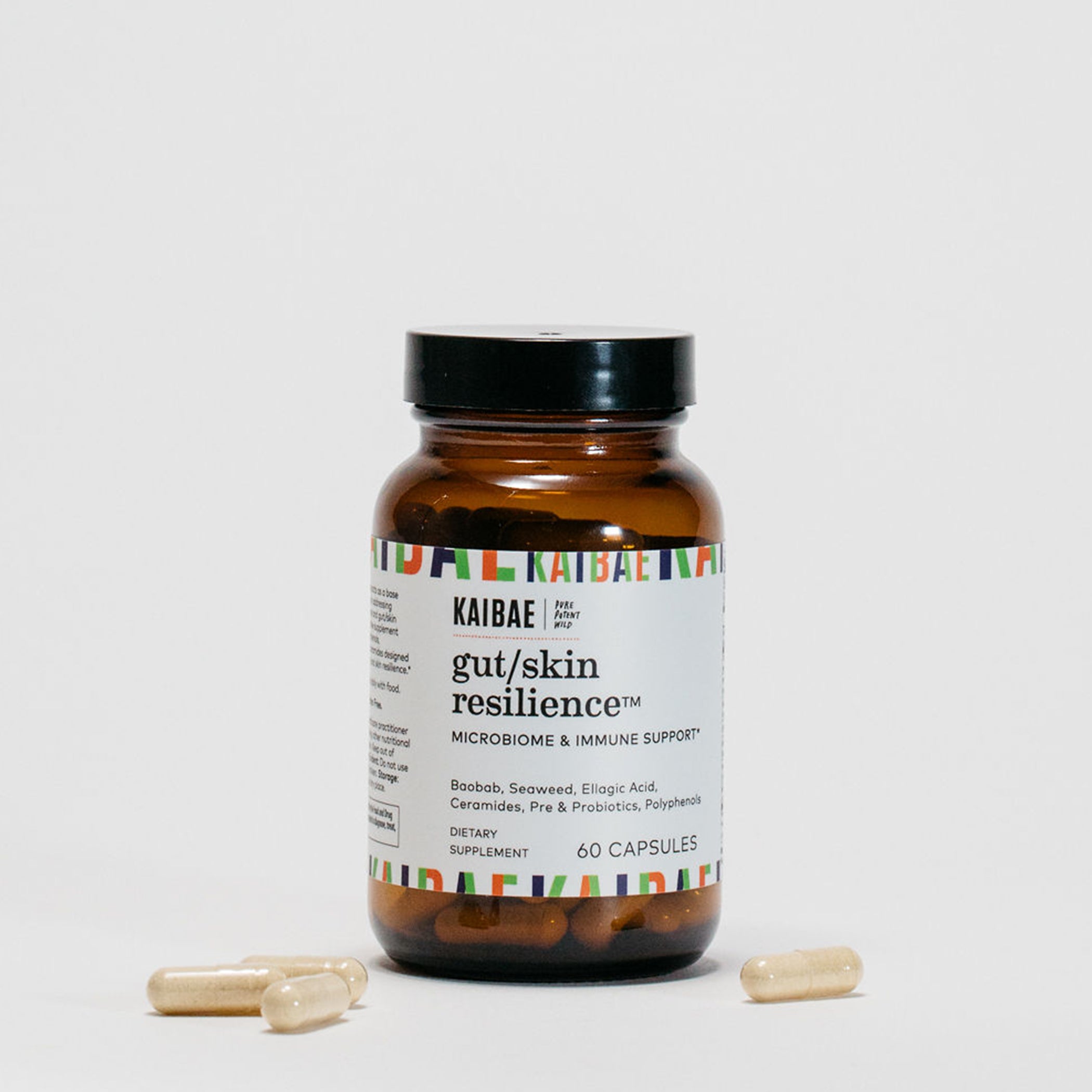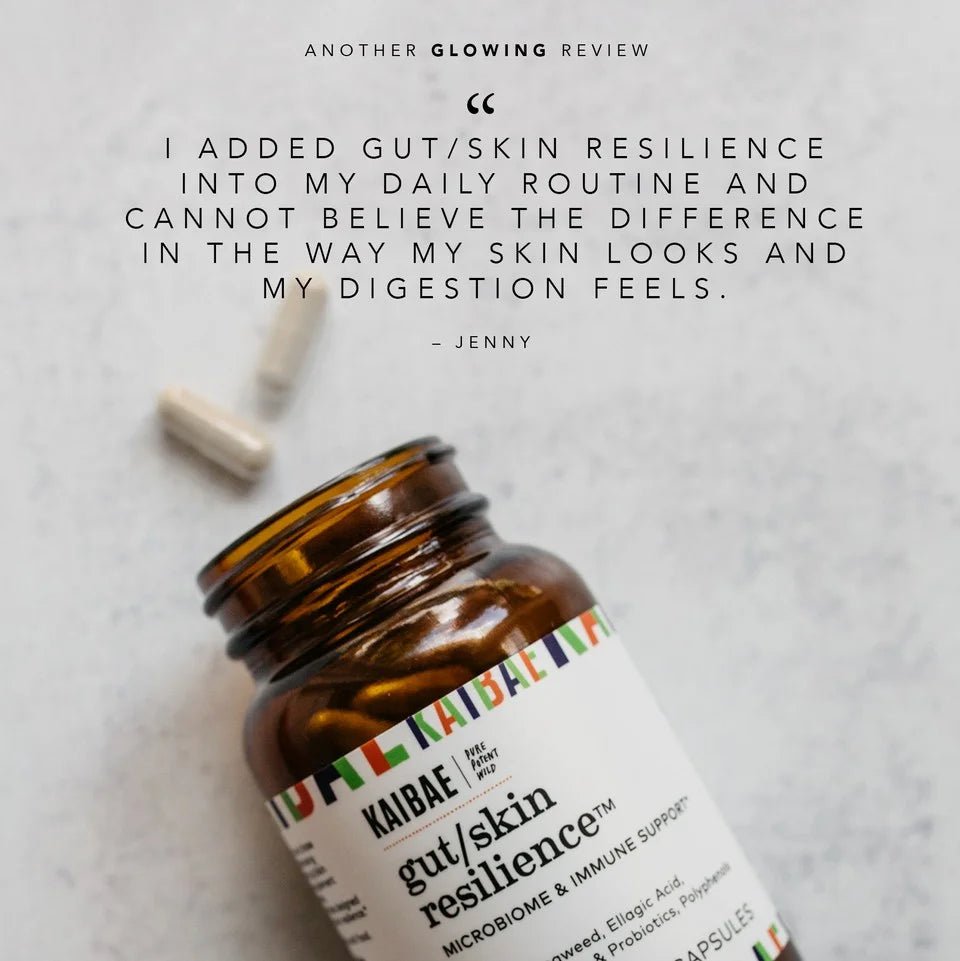Stress Resilience Starts In The Gut
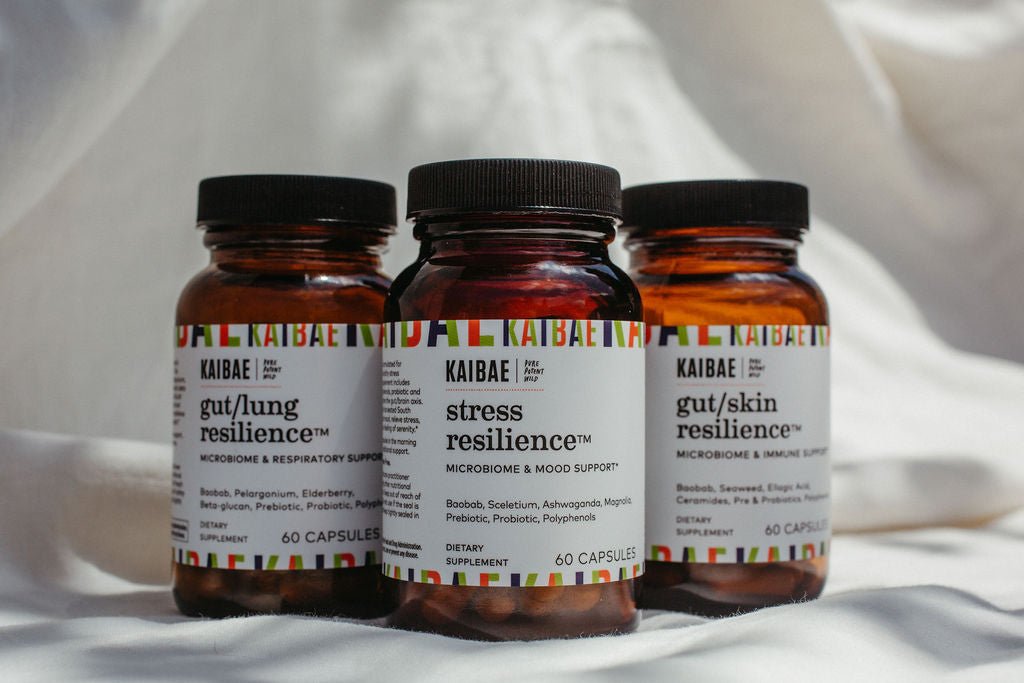
A successful response to stress is a short-lasting burst of stress hormones that levels out once the threat passes and your heart rate and blood pressure return to normal. But when stressors persist, that fight-or-flight reaction stays turned on.
Prolonged stress comes with overexposure to cortisol which puts you at increased risk of many health problems, including anxiety, depression, digestive issues, muscle tension, heart disease, high blood pressure, stroke, sleep problems, weight gain, and even skin problems.
What high cortisol does to the body.
Stress triggers the hypothalamus pituitary adrenal (HPA) axis into action. The hypothalamus, a neuroendocrine structure in the brain, messages the pituitary gland to produce ACTH, which travels through the bloodstream and stimulates the adrenals to produce cortisol. [1]
What is Cortisol?
When we think of cortisol, we think of stress. But cortisol plays a vital role in our sleep-wake cycle, reducing inflammation, mobilizing glucose, and regulating energy levels and blood pressure. Cortisol is a hormone with a circadian rhythm; under normal circumstances, the highest amount of cortisol is produced in the morning on waking and tapers off towards the evening, which helps us go to sleep.
Short bursts of cortisol are a healthy response to acutely stressful situations, but excessive and persistent stress keeps cortisol elevated for extended periods, damaging our health. While we consider stressors emotional and mental, food intolerances, allergies, and even pollution in our environment can be sources of continued elevated cortisol levels.
Cortisol and Weight gain
Cortisol affects fat distribution, storing fat centrally around the organs. Abdominal fat accumulates with persistently high cortisol levels and depletes essential nutrients such as zinc, leading to increased insulin resistance. Insulin resistance is a pre-diabetic state where your cells become less sensitive to insulin’s action of helping glucose enter cells. [2,3,4]
Cortisol and Insomnia
High cortisol levels disrupt the sleep-wake cycle, reducing our resilience to stress. Cortisol suppresses the production of melatonin, the sleep hormone that also serves as a powerful antioxidant that restores cells and rejuvenates us while we sleep.[5,6]
Cortisol and Bloating
Bloating involves imbalances in the digestive, hormonal and neurochemical systems. IBS, for example, affects increased sensitivity to cortisol levels, imbalances in sex hormones, and the gut microbiome. Cortisol disrupts the gut barrier, which causes the leaky gut syndrome, where the transfer of toxins into the bloodstream leads to local and systemic inflammation.[7,8]
Cortisol Lowers your Testosterone
Stress increases a protein in the blood called sex hormone-binding globulin (SHBG). This protein attaches to testosterone, making it less available to your cells. Testosterone is an anabolic hormone and when its function is disrupted leads to low sex drive, muscle atrophy, depression, and memory problems.[9]
Cortisol and Your Skin
Chronic exposure to cortisol damages collagen, which promotes the appearance of fine lines and wrinkles. Stress causes a reduction in the skin's surface lipid layer, weakening the skin barrier that helps the skin retain moisture. Improving how we handle stress is crucial to maintaining skin health and essential in treating all skin conditions, including rosacea, acne, seborrheic dermatitis, psoriasis, vitiligo, and eczema.[10]
Stress and the Brain-Skin Axis
There is a crosstalk between the brain and the skin. A neurotrophic factor called BDNF, important to brain function, also affects skin health. Stress reduces BDNF increasing skin sensitivity and reducing the skin's ability to retain moisture—the combined use of KAIBAE stress resilience and gut-skin resilience. [11,12] dietary supplements help reduce the effect of stress on the skin.

How to Support a Healthy Stress Response
1. Improve gut function
According to University in Boulder, Colorado researchers, adding prebiotic fiber to the diet improves stress resilience and sleep. Baobab Fruit Powder is a superfood rich in prebiotic fiber, polyphenols, vitamin C and minerals. Adding prebiotic fiber increases probiotics and butyrate short-chain fatty acid, increasing the production of GABA, a calming neurotransmitter.[13]
2. Increase polyphenol intake
Polyphenols are a group of plant compounds with anti-inflammatory and antioxidant benefits. Wild plants produce them to protect themselves against pathogens and UV radiation.
Baobabs produce more polyphenols than any other plant known to man. What is impressive about polyphenols is that they benefit many aspects of our health, both mentally and physically. Pomegranate-derived polyphenols found in KAIBAE gut-skin resilience help reduce skin pigmentation and improve mood.
Baobab fruit powder is an excellent superfood to reduce the general effects of stress throughout the body. KAIBAE stress resilience and gut-skin resilience provide specific support for healthy stress response and skin health. [14,15]
3. Include Adaptogens
Adaptogens are plants that help regulate our stress response. KAIBAE's doctor-formulated Stress Resilience supplement combines prebiotics and probiotics with wild polyphenols and adaptogens. These adaptogens calm the mind, soothe the mood, and promote mental clarity and a feeling of serenity.
Key ingredients in KAIBAE Stress Resilience include a synbiotic combination of Baobab, spore biotics, and Fructo-oligosaccharides to activate and improve the absorption of the polyphenols found in Sceletium, Magnolia, and Ashwagandha.
- Sceletium (Kanna) is wild harvested in South Africa and has a long history of use with local tribes to provide a feeling of serenity and elevate mood. [16]
- Magnolia bark contains active compounds magnolol and honokiol with anxiolytic and mood-elevating properties. Magnolia bark improves sleep by boosting GABA, a calming neurotransmitter, and helps prevent memory impairment.[17,18]
- Ashwagandha is an anxiolytic and stress reliever. Ashwagandha improves total sleep time and sleep quality. Ashwagandha has been reported to improve testosterone levels and upper and lower body strength and benefit athletic performance and recovery after exercise.[19]
4. Fast 16 hours 2-3 times per week
Research shows that fasting interventions may positively affect anxiety, depression, and body mass index reduction without increasing fatigue.[20,21]. In an article published in Blue Zones, researchers at the University of Florida found that fasting improves cells' resilience to stress.[22]
5. Eat a Mediterranean diet
Adopting a Mediterranean diet rich in fruits, vegetables, nuts, and seeds with more fish than meat is a great way to reduce the adverse effects of stress. Nuts contain B vitamins and potassium, Vegetables, and fruits, including baobab fruit powder, bell peppers, and leafy greens, are packed with vitamin C and magnesium, which help lower inflammation. Wild-caught fish is rich in omega-3 fatty acids, which have been shown to improve mood and reduce anxiety.[23]

Conclusion
Stress is an inevitable and essential part of life.... in small bursts. But when stress becomes persistent, it damages our health. The intensity of the events in our lives and our genetic predisposition determine the degree to which we are affected.[24] Modern living is stressful and requires us to make better dietary choices, including activities such as exercise and meditation, to improve our resilience.
KAIBAE is a microbiome wellness company and B-Corp with a mission to provide the best in wellness and skincare, making the world a better place using business as a force for good!
1. Leistner C, Menke A. Hypothalamic-pituitary-adrenal axis and stress. Handb Clin Neurol. 2020;175:55-64.
2. Asadi A, Shadab Mehr N, Mohamadi MH, Shokri F, Heidary M, Sadeghifard N, Khoshnood S. Obesity and gut-microbiota-brain axis: A narrative review. J Clin Lab Anal. 2022 May;36(5):e24420.
3.Yau YH, Potenza MN. Stress and eating behaviors. Minerva Endocrinol. 2013 Sep;38(3):255-67. PMID: 24126546; PMCID: PMC4214609. Morais JBS, Severo JS, Beserra JB, de Oiveira ARS, Cruz KJC, de Sousa Melo SR, do Nascimento GVR, de Macedo GFS, do Nascimento Marreiro D.
4. Cortisol, Insulin Resistance and Zinc in Obesity: a Mini-Review. Biol Trace Elem Res. 2019 Oct;191(2):323-330.
5.van Dalfsen JH, Markus CR. The influence of sleep on human hypothalamic-pituitary-adrenal (HPA) axis reactivity: A systematic review. Sleep Med Rev. 2018 Jun;39:187-194.
6.Van Laethem M, Beckers DGJ, Dijksterhuis A, Geurts SAE. Stress, fatigue, and sleep quality leading up to and following a stressful life event. Stress Health. 2017 Oct;33(4):459-469.
7.Pellissier S, Bonaz B. The Place of Stress and Emotions in the Irritable Bowel Syndrome. Vitam Horm. 2017;103:327-354.
8.Jiang Y, Greenwood-Van Meerveld B, Johnson AC, Travagli RA. Role of estrogen and stress on the brain-gut axis. Am J Physiol Gastrointest Liver Physiol. 2019 Aug 1;317(2):G203-G209.
9. Brownlee KK, Moore AW, Hackney AC. Relationship between circulating cortisol and testosterone: influence of physical exercise. J Sports Sci Med. 2005 Mar 1;4(1):76-83.
10. Lin TK, Zhong L, Santiago JL. Association between Stress and the HPA Axis in the Atopic Dermatitis. Int J Mol Sci. 2017 Oct 12;18(10):2131.
11.Chen G, Chen ZM, Fan XY, Jin YL, Li X, Wu SR, Ge WW, Lv CH, Wang YK, Chen JG. Gut-Brain-Skin Axis in Psoriasis: A Review. Dermatol Ther (Heidelb). 2021 Feb;11(1):25-38.
12.Woo YR, Han YJ, Kim HS, Cho SH, Lee JD. Updates on the Risk of Neuropsychiatric and Gastrointestinal Comorbidities in Rosacea and Its Possible Relationship with the Gut-Brain-Skin Axis. Int J Mol Sci. 2020 Nov 10;21(22):8427.
13. Frankiensztajn LM, Elliott E, Koren O. The microbiota and the hypothalamus-pituitary-adrenocortical (HPA) axis, implications for anxiety and stress disorders. Curr Opin Neurobiol. 2020 Jun;62:76-82.
14. Geng R, Kang SG, Huang K, Tong T. Boosting the Photoaged Skin: The Potential Role of Dietary Components. Nutrients. 2021 May 16;13(5):1691.
15.Diaz-Gerevini GT, Repossi G, Dain A, Tarres MC, Das UN, Eynard AR. The beneficial action of resveratrol: How and why? Nutrition. 2016 Feb;32(2):174-8.
16. Olatunji TL, Siebert F, Adetunji AE, Harvey BH, Gericke J, Hamman JH, Van der Kooy F. Sceletium tortuosum: A review on its phytochemistry, pharmacokinetics, biological and clinical activities. J Ethnopharmacol. 2021 Nov 15;280:114476.
17.Rauf A, Olatunde A, Imran M, Alhumaydhi FA, Aljohani ASM, Khan SA, Uddin MS, Mitra S, Emran TB, Khayrullin M, Rebezov M, Kamal MA, Shariati MA. Honokiol: A review of its pharmacological potential and therapeutic insights. Phytomedicine. 2021 Sep;90:153647.
18.Poivre M, Duez P. Biological activity and toxicity of the Chinese herb Magnolia officinalis Rehder & E. Wilson (Houpo) and its constituents. J Zhejiang Univ Sci B. 2017 Mar.;18(3):194-214.
19.Mandlik Ingawale DS, Namdeo AG. The pharmacological evaluation of Ashwagandha highlights its healthcare claims, safety, and toxicity aspects. J Diet Suppl. 2021;18(2):183-226.
20. Berthelot E, Etchecopar-Etchart D, Thellier D, Lancon C, Boyer L, Fond G. Fasting Interventions for Stress, Anxiety and Depressive Symptoms: A Systematic Review and Meta-Analysis. Nutrients. 2021 Nov 5;13(11):3947.



